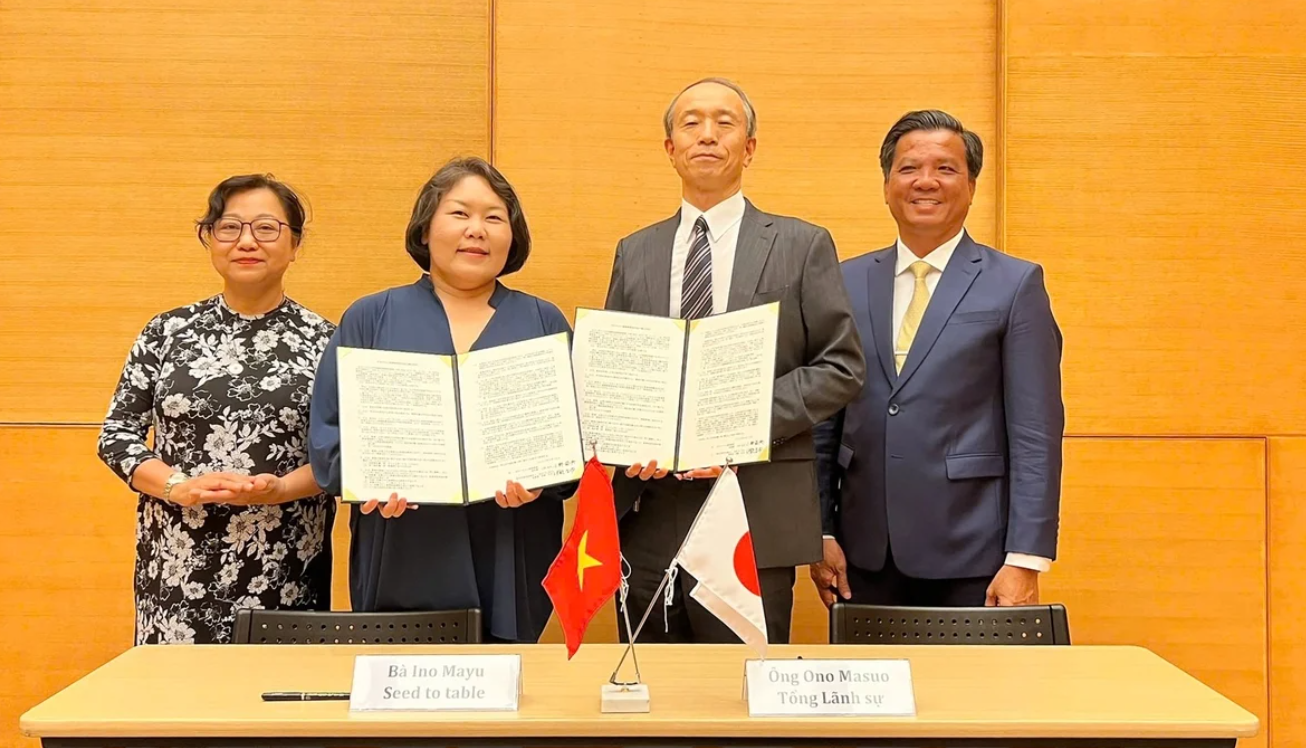On May 19, the Consulate General of Japan in Ho Chi Minh City signed a non-refundable aid agreement with the Japanese NGO Seed to Table to implement the final year of the project “Sustainable Community Development through Human Resource Training in Organic Agriculture, Food Processing, and Business Management” in Dong Thap Province.
The project, led by Seed to Table since 2019 with financial support from the Japanese government, aims to promote organic farming and sustainable community development in the Mekong Delta. Over the years, it has expanded in scale and scope, focusing on farmer training, technical support, and market connectivity.
According to Mr. Le Chi Thien, Director of Dong Thap's Department of Agriculture and Environment, more than 200 local officials from agriculture, education, women’s unions, and grassroots government have received training. Additionally, hundreds of farmers and students have been taught organic farming methods, food processing, and business management skills with direct support from Japanese experts.
 Japan provides non-refundable aid of nearly 160,000 USD to develop an organic agriculture project in Dong Thap. Photo: Nguyen Thuy.
Japan provides non-refundable aid of nearly 160,000 USD to develop an organic agriculture project in Dong Thap. Photo: Nguyen Thuy.“The province has established nine organic farming groups covering 5.6 hectares. Eight groups have been certified under Vietnam’s Participatory Guarantee System (PGS) – a national standard for small-scale organic produce,” Mr. Thien shared.
The project does not only focus on production but also supports the entire value chain. Activities include: Building school vegetable greenhouses; Equipping Dong Thap Community College with preservation and food processing machinery; Developing organic agriculture curricula, a local PGS system, and traceability labels; Connecting farmers with buyers in Ho Chi Minh City; Organizing study tours to Japan.
In the education sector, Ms. Nguyen Thi Thuy Ha, Director of Dong Thap's Department of Education and Training, noted that 21 secondary and high schools have already established organic gardens on campus. These are hands-on learning environments where students can grow vegetables, process food, and explore clean production methods and environmental protection practices.
“While initial results are positive, some schools face challenges due to limited funding, land availability, or staffing,” Ms. Ha added. The department will continue working with Seed to Table to expand the model, aiming to integrate organic produce into school meals and incorporate the “organic garden” standard into criteria for green–clean–beautiful schools.
The final phase of the project is scheduled to launch in June. Upon completion, the project will be handed over to Dong Thap Province for continued operation, to institutionalize it as a long-term local program.